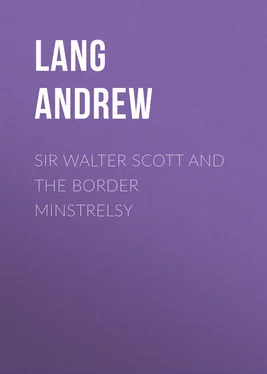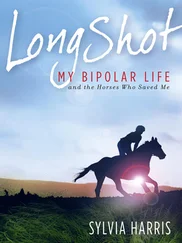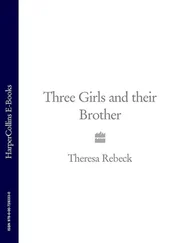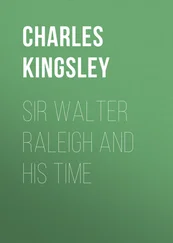Andrew Lang - Sir Walter Scott and the Border Minstrelsy
Здесь есть возможность читать онлайн «Andrew Lang - Sir Walter Scott and the Border Minstrelsy» — ознакомительный отрывок электронной книги совершенно бесплатно, а после прочтения отрывка купить полную версию. В некоторых случаях можно слушать аудио, скачать через торрент в формате fb2 и присутствует краткое содержание. Жанр: foreign_antique, foreign_prose, на английском языке. Описание произведения, (предисловие) а так же отзывы посетителей доступны на портале библиотеки ЛибКат.
- Название:Sir Walter Scott and the Border Minstrelsy
- Автор:
- Жанр:
- Год:неизвестен
- ISBN:нет данных
- Рейтинг книги:5 / 5. Голосов: 1
-
Избранное:Добавить в избранное
- Отзывы:
-
Ваша оценка:
- 100
- 1
- 2
- 3
- 4
- 5
Sir Walter Scott and the Border Minstrelsy: краткое содержание, описание и аннотация
Предлагаем к чтению аннотацию, описание, краткое содержание или предисловие (зависит от того, что написал сам автор книги «Sir Walter Scott and the Border Minstrelsy»). Если вы не нашли необходимую информацию о книге — напишите в комментариях, мы постараемся отыскать её.
Sir Walter Scott and the Border Minstrelsy — читать онлайн ознакомительный отрывок
Ниже представлен текст книги, разбитый по страницам. Система сохранения места последней прочитанной страницы, позволяет с удобством читать онлайн бесплатно книгу «Sir Walter Scott and the Border Minstrelsy», без необходимости каждый раз заново искать на чём Вы остановились. Поставьте закладку, и сможете в любой момент перейти на страницу, на которой закончили чтение.
Интервал:
Закладка:
That Scott got the ballad in spring 1802 is easily proved. On 10th April 1802, Joseph Ritson, the crabbed, ill-tempered, but meticulously accurate scholar, who thought that ballad-forging should be made a capital offence, wrote thus to Scott: —
“I have the pleasure of enclosing my copy of a very ancient poem, which appears to me to be the original of The Wee Wee Man , and which I learn from Mr. Ellis you are desirous to see.” In Scott’s letter to Ellis, just quoted, he says: “I have lately had from him” (Ritson) “ a copie of ‘Ye litel wee man,’ of which I think I can make some use. In return, I have sent him a sight of Auld Maitland , the original MS.. I wish him to see it in puris naturalibus .” “The precaution here taken was very natural,” says Lockhart, considering Ritson’s temper and hatred of literary forgeries. Scott, when he wrote to Ellis, had received Ritson’s The Wee Wee Man “lately”: it was sent to him by Ritson on 10th April 1802. Scott had already, when he wrote to Ellis, got “the original MS. of Auld Maitland ” (now in Abbotsford Library). By 10th June 1802 Ritson wrote saying, “You may depend on my taking the utmost care of Old Maitland , and returning it in health and safety. I would not use the liberty of transcribing it into my manuscript copy of Mrs. Brown’s ballads, but if you will signify your permission, I shall be highly gratified.” 18 18 Ritson of 10th April 1802, in his Letters of Joseph Ritson , Esq. , vol. ii. p. 218. Letter of 10th June 1802, Ibid. , p. 207. Ritson returned the original manuscript of Auld Maitland on 28th February 1803, Ibid. , p. 230.
“Your ancient and curious ballad,” he styles the piece.
Thus Scott had Auld Maitland in May 1802; he sent the original MS. to Ritson; Ritson received it graciously; he had, on 10th April 1802, sent Scott another MS., The Wee Wee Man : and when Scott wrote to Ellis about his surprise at getting “a complete and perfect copy of Maitland,” he had but lately received The Wee Wee Man , sent by Ritson on 10th April 1802. He had made a spring, not an autumn, raid into the Forest.
We now know the external history of the ballad. Laidlaw, hearing his servant repeat some stanzas, asks Hogg for the full copy, which Hogg sends with a pedigree from which he never wavered. Auld Andrew Muir taught the song to Hogg’s mother and uncle. Hogg took it from his uncle’s recitation, and sent it, directed outside,
and Laidlaw gave it to Scott, in March 12–May 12, 1802. But Scott, publishing the ballad in The Minstrelsy (1803), says it is given “as written down from the recitation of the mother of Mr. James Hogg, who sings, or rather chants, it with great animation” (manifestly he had heard the recitation which he describes).
It seems that Scott, before he wrote to Ellis in May 1802, had misgivings about the ballad. Says Carruthers, he “made another visit to Blackhouse for the purpose of getting Laidlaw as a guide to Ettrick,” being “curious to see the poetical shepherd.”
Laidlaw’s MS., used by Carruthers, describes the wild ride by the marshes at the head of the Loch of the Lowes, through the bogs on the knees of the hills, down a footpath to Ramseycleuch in Ettrick. They sent to Ettrick House for Hogg; Scott was surprised and pleased with James’s appearance. They had a delightful evening: “the qualities of Hogg came out at every instant, and his unaffected simplicity and fearless frankness both surprised and pleased the Sheriff.” 19 19 Carruthers, pp. 128, 131.
Next morning they visited Hogg and his mother at her cottage, and Hogg tells how the old lady recited Auld Maitland . Hogg gave the story in prose, with great vivacity and humour, in his Domestic Manners of Sir Walter Scott (1834).
In an earlier poetical address to Scott, congratulating him on his elevation to the baronetcy (1818), the Shepherd says —
When Maitland’s song first met your ear,
How the furled visage up did clear.
Beaming delight! though now a shade
Of doubt would darken into dread,
That some unskilled presumptuous arm
Had marred tradition’s mighty charm.
Scarce grew thy lurking dread the less,
Till she, the ancient Minstreless,
With fervid voice and kindling eye,
And withered arms waving on high,
Sung forth these words in eldritch shriek,
While tears stood on thy nut-brown cheek:
“Na, we are nane o’ the lads o’ France,
Nor e’er pretend to be;
We be three lads of fair Scotland,
Auld Maitland’s sons a’ three.”
(Stanza xliii. as printed. In Hogg’s MS. copy, given to Laidlaw there are two verbal differences, in lines 1 and 4.)
Then says Hogg —
Thy fist made all the table ring,
By – , sir, but that is the thing!
Hogg could not thus describe the scene in addressing Scott himself, in 1818, if his story were not true. It thus follows that his mother knew the sixty-five stanzas of the ballad by heart. Does any one believe that, as a woman of seventy-two, she learned the poem to back Hogg’s hoax? That he wrote the poem, and caused her to learn it by rote, so as to corroborate his imposture?
This is absurd.
But now comes the source of Colonel Elliot’s theory of a conspiracy between Scott and Hogg, to forge a ballad and issue the forgery. Colonel Elliot knows scraps of a letter to Hogg of 30th June 1802. He has read parts, not bearing on the question, in Mr. Douglas’s Familiar Letters of Sir Walter Scott (vol. i. pp. 12–15), and another scrap, in which Hogg says that “I am surprised to hear that Auld Maitland is suspected by some to be a modern forgery.” This part of Hogg’s letter of 30th June 1802 was published by Scott himself in the third volume of The Minstrelsy (April 1803).
Not having the context of the letter, Colonel Elliot seems to argue, “Scott says he got his first copy in autumn 1802” (Lockhart’s mistake), “yet here are Hogg and Scott corresponding about the ballad long before autumn, in June 1802. This is very suspicious.” I give what appears to be Colonel Elliot’s line of reflection in my own words. He decides that, as early as June 1802, “Hogg”(in the Colonel’s ‘view’), “in the first instance, tried to palm off the ballad on Scott, and failed; and that then Scott palmed it off on the public, and succeeded.”
This is all a mare’s nest. Scott, in March-May 1802, had the whole of the ballad except one stanza, which Hogg sent to him on 30th June.
I now print, for the first time, the whole of Hogg’s letter of 30th June, with its shrewd criticism on ballads, hitherto omitted, and I italicise the passage about Auld Maitland : —
Ettrick House, June 30.Dear Sir, – I have been perusing your minstrelsy very diligently for a while past, and it being the first book I ever perused which was written by a person I had seen and conversed with, the consequence hath been to me a most sensible pleasure; for in fact it is the remarks and modern pieces that I have delighted most in, being as it were personally acquainted with many of the modern pieces formerly. My mother is actually a living miscellany of old songs. I never believed that she had half so many until I came to a trial. There are some ( sic ) in your collection of which she hath not a part, and I should by this time had a great number written for your amusement, thinking them all of great antiquity and lost to posterity, had I not luckily lighted upon a collection of songs in two volumes, published by I know not who, in which I recognised about half-a-score of my mother’s best songs, almost word for word. No doubt I was piqued, but it saved me much trouble, paper, and ink; for I am carefully avoiding anything which I have seen or heard of being in print, although I have no doubt that I shall err, being acquainted with almost no collections of that sort, but I am not afraid that you too will mistake. I am still at a loss with respect to some: such as the Battle of Flodden beginning, “From Spey to the Border,” a long poetical piece on the battle of Bannockburn, I fear modern: The Battle of the Boyne, Young Bateman’s Ghost, all of which, and others which I cannot mind, I could mostly recover for a few miles’ travel were I certain they could be of any use concerning the above; and I might have mentioned May Cohn and a duel between two friends, Graham and Bewick, undoubtedly very old. You must give me information in your answer. I have already scraped together a considerable quantity – suspend your curiosity, Mr. Scott, you will see them when I see you, of which I am as impatient as you can be to see the songs for your life. But as I suppose you have no personal acquaintance in this parish, it would be presumption in me to expect that you will visit my cottage, but I will attend you in any part of the Forest if you will send me word. I am far from supposing that a person of your discernment, – d – n it, I’ll blot out that, ’tis so like flattery. I say I don’t think you would despise a shepherd’s “humble cot an’ hamely fare,” as Burns hath it, yet though I would be extremely proud of a visit, yet hang me if I would know what to do wi’ ye. I am surprised to find that the songs in your collection differ so widely from my mother’s. Is Mr. Herd’s MS. genuine? I suspect it. Jamie Telfer differs in many particulars. Johnny Armstrong of Gilnockie is another song altogether. I have seen a verse of my mother’s way called Johny Armstrong’s last good-night cited in the Spectator , and another in Boswell’s Journal . It begins, “Is there ne’er a man in fair Scotland?” Do you know if this is in print, Mr. Scott? In the Tale of Tomlin the whole of the interlude about the horse and the hawk is a distinct song altogether. 20 20 Sweet William’s Ghost .
Clerk Saunders is nearly the same with my mother’s, until that stanza [xvi.] which ends, “was in the tower last night wi’ me,” then with another verse or two which are not in yours, ends Clerk Saunders. All the rest of the song in your edition is another song altogether, which my mother hath mostly likewise, and I am persuaded from the change in the stile that she is right, for it is scarce consistent with the forepart of the ballad. I have made several additions and variations out, to the printed songs, for your inspection, but only when they could be inserted without disjointing the songs as they are at present; to have written all the variations would scarcely be possible, and I thought would embarrass you exceedingly. I have recovered another half verse of Old Maitlan , and have rhymed it thus —
Интервал:
Закладка:
Похожие книги на «Sir Walter Scott and the Border Minstrelsy»
Представляем Вашему вниманию похожие книги на «Sir Walter Scott and the Border Minstrelsy» списком для выбора. Мы отобрали схожую по названию и смыслу литературу в надежде предоставить читателям больше вариантов отыскать новые, интересные, ещё непрочитанные произведения.
Обсуждение, отзывы о книге «Sir Walter Scott and the Border Minstrelsy» и просто собственные мнения читателей. Оставьте ваши комментарии, напишите, что Вы думаете о произведении, его смысле или главных героях. Укажите что конкретно понравилось, а что нет, и почему Вы так считаете.









